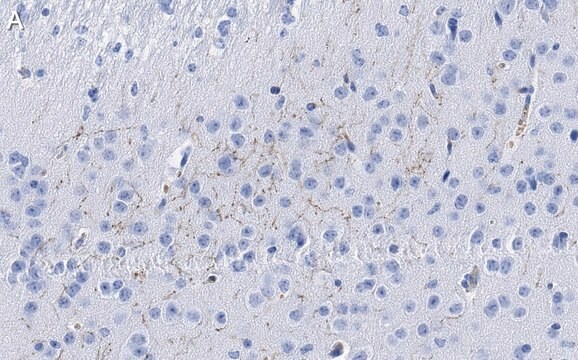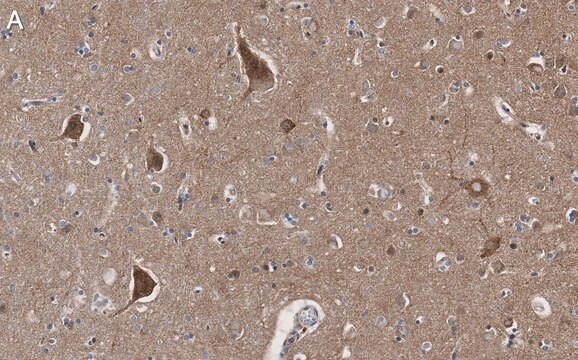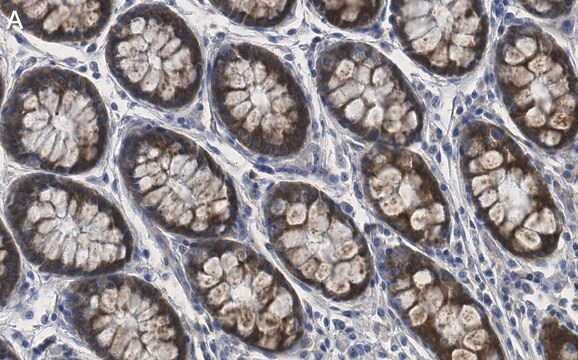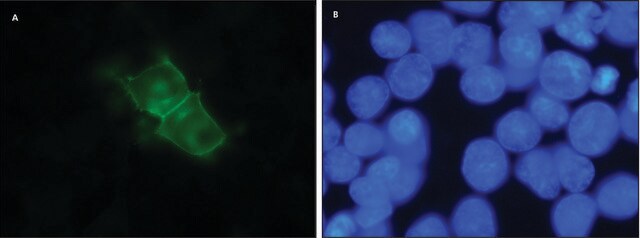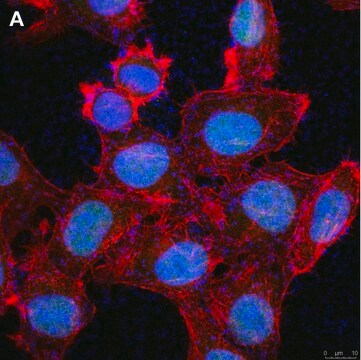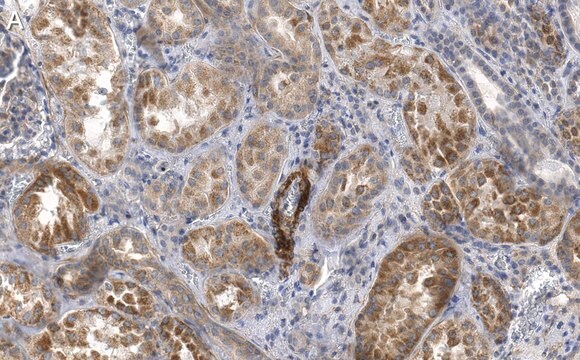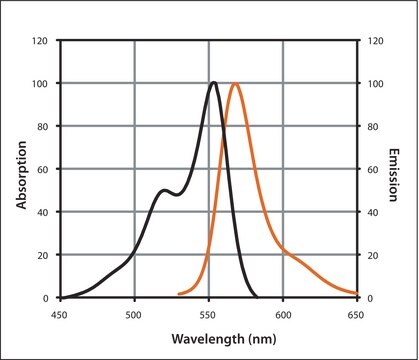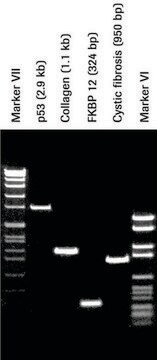ZRB1828
Anti-ACAD10 Antibody, clone 3J20 ZooMAb® Rabbit Monoclonal

recombinant, expressed in HEK 293 cells
About This Item
IHC (p)
WB
affinity binding assay
recombinant monoclonal
flow cytometry: suitable
immunohistochemistry (formalin-fixed, paraffin-embedded sections): suitable
western blot: suitable
Productos recomendados
biological source
rabbit
Quality Level
recombinant
expressed in HEK 293 cells
conjugate
unconjugated
antibody form
purified antibody
antibody product type
primary antibodies
clone
3J20, monoclonal
recombinant monoclonal
description
3J20 Clone
product line
ZooMAb® learn more
form
lyophilized
mol wt
calculated mol wt ~118.83 kDa
observed mol wt ~130 kDa
species reactivity
rat, human
species reactivity (predicted by homology)
monkey
packaging
antibody small pack of 25 μL
greener alternative product characteristics
Waste Prevention
Designing Safer Chemicals
Design for Energy Efficiency
Learn more about the Principles of Green Chemistry.
enhanced validation
recombinant expression
Learn more about Antibody Enhanced Validation
sustainability
Greener Alternative Product
technique(s)
affinity binding assay: suitable
flow cytometry: suitable
immunohistochemistry (formalin-fixed, paraffin-embedded sections): suitable
western blot: suitable
isotype
IgG
UniProt accession no.
greener alternative category
shipped in
ambient
storage temp.
2-8°C
target post-translational modification
unmodified
General description
Each ZooMAb antibody is manufactured using our proprietary recombinant expression system, purified to homogeneity, and precisely dispensed to produce robust and highly reproducible lot-to-lot consistency. Only top-performing clones are released for use by researchers. Each antibody is validated for high specificity and affinity across multiple applications, including its most commonly used application. ZooMAb antibodies are reliably available and ready to ship when you need them.
Specificity
Immunogen
Application
Evaluated by Western Blotting in L6 cell lysate.
Western Blotting Analysis: A 1:10,000 dilution of this antibody detected ACAD10 in L6 cell lysate.
Tested Applications
Affinity Binding Assay: A representative lot of this antibody bound ACAD10 peptide with a KD of 1.0 x 10-12 in an affinity binding assay.
Flow Cytometry Analysis: 0.1 μg from a representative lot detected ACAD10 in one million L6 cells.
Immunohistochemistry (Paraffin) Analysis: A 1:100 dilution from a representative lot detected ACAD10 in human skeletal muscle tissue sections.
Note: Actual optimal working dilutions must be determined by end user as specimens, and experimental conditions may vary with the end user
Target description
Physical form
Reconstitution
Storage and Stability
Legal Information
Disclaimer
¿No encuentra el producto adecuado?
Pruebe nuestro Herramienta de selección de productos.
Storage Class
11 - Combustible Solids
wgk_germany
WGK 1
flash_point_f
Not applicable
flash_point_c
Not applicable
Elija entre una de las versiones más recientes:
Certificados de análisis (COA)
¿No ve la versión correcta?
Si necesita una versión concreta, puede buscar un certificado específico por el número de lote.
¿Ya tiene este producto?
Encuentre la documentación para los productos que ha comprado recientemente en la Biblioteca de documentos.
Nuestro equipo de científicos tiene experiencia en todas las áreas de investigación: Ciencias de la vida, Ciencia de los materiales, Síntesis química, Cromatografía, Analítica y muchas otras.
Póngase en contacto con el Servicio técnico